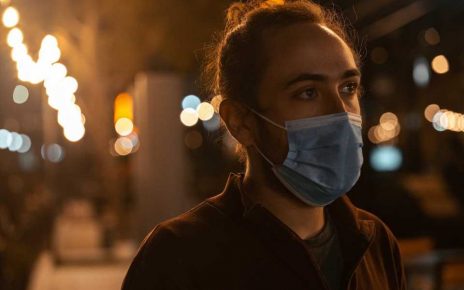There are numerous things in your life that change when you get a diagnosis for a chronic condition. There’s the relief of having more answers and, ideally, a path toward treatment. But for the vast majority of people with chronic illnesses that are considered “invisible” — there can also be some additional hidden struggles that come with living with something that is such a huge part of your life that many people cannot immediately understand.
“Having a chronic illness can be very difficult physically and mentally for the individual and family, particularly one that is invisible,” Turiya Powell, MA, Licensed Clinical Mental Health Counselor Thriveworks in Cary who also lives with an invisible illness herself (Multiple Sclerosis) tells SheKnows. “Oftentimes, depression goes hand in hand with the illness, as the individual are regularly experiencing symptoms, ranging from mild to severe, but because they are invisible are not getting the support they need. Anxiety may also be an issue, as symptoms may become present in random situations, thus affecting how the individual functions in different situations.”
“If you look healthy, people assume that there is nothing wrong with you.”
Laura Torchinsky of Silver Spring, MD has Rheumatoid Arthritis and tells SheKnows that it can be challenging navigating other people’s assumptions about her illness and what’s going in her body.
“If you look healthy, people assume that there is nothing wrong with you. I’ve been on a crowded metro train, standing in the aisle, with aching feet or stiff fingers that make it difficult to hold on. Nobody would think about offering me a seat, because I look ‘fine.’ It can be very frustrating. I have often been questioned why I use a handicapped parking placard,” Torchinsky says. “It’s mentally and physically challenging to live with any chronic illness. I sometimes wear an ankle brace. When people notice it they ask why. For some reason, it feels more difficult to say ‘I have Rheumatoid Arthritis,’ than if I were to say ‘I sprained my ankle!’”
That idea of whether you actually “look” sick — and having to explain personal medical-adjacent information to friends, co-workers and even strangers — is something that continually comes up when you talk to folks living with chronic invisible illnesses. You’ve got people feeling like, in addition to just living their lives with their conditions, they also have to constantly explain, advocate and justify their experiences or even the accommodations they need to get through the day. So it’s a double duty that absolutely no one would ask for.
“Many illnesses are invisible, meaning that there are no external indicators that the individual is in fact dealing with an illness. One comment that I often receive, as a person living with Multiple Sclerosis, is, ‘Wow, you don’t look sick,’ Powell adds. “This comment is frustrating because I question, what does ‘sick’ look like?”
Supporting Mental Health When Somebody’s Illness is ‘Invisible’
But there are ways for people who are experiencing these struggles to get support — and ways for our communities to do better when it comes to making space to support the additional mental health toll that can come with these conditions.
And, maybe, most obviously people can start by not assuming they can ever know anything about another person’s health by looking at them. It can be challenging to overcome these kind of innate biases, but it’s super helpful to consistently remind yourself that you don’t know live in another person’s body and you aren’t sitting in on their doctor’s appointments before making any kind of comments that could be hurtful.
This kind of re-framing and ditching the assumptions can also make it easier to create more inclusive environments that feel safe and open to people living with invisible illnesses and disabilities.
“I tell people that I spent the first 30 years of having RA trying to hide it. I’ll spend the next 30 years telling anyone who will listen!”
“The community can be helpful by being respectful, listening and looking to learn,” Powell says. “In addition, providing services, such as exercise for disabilities and support groups, could be very beneficial.”
And for people living with these conditions, it’s more important than ever that you don’t feel forced to hide or disguise what you’re going through or struggle by yourself.
“Talk about it! Even though it may feel awkward at first, it is so helpful to talk about it,” Torchinsky says. “I’ve had RA for over 30 years. It is only over the last few years that I have gotten involved with patient advocacy and it was mentally difficult to put myself out there. It was very cathartic. I tell people that I spent the first 30 years of having RA trying to hide it. I’ll spend the next 30 years telling anyone who will listen!”
Source: Read Full Article




